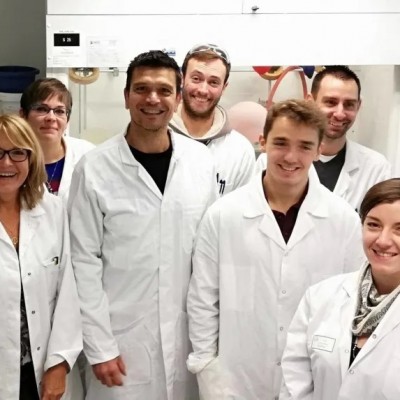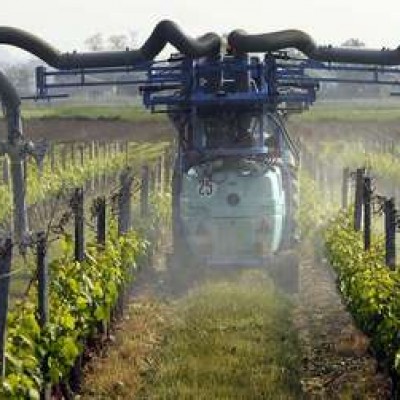Charity dedicated to the fight
against childhood cancer
against childhood cancer
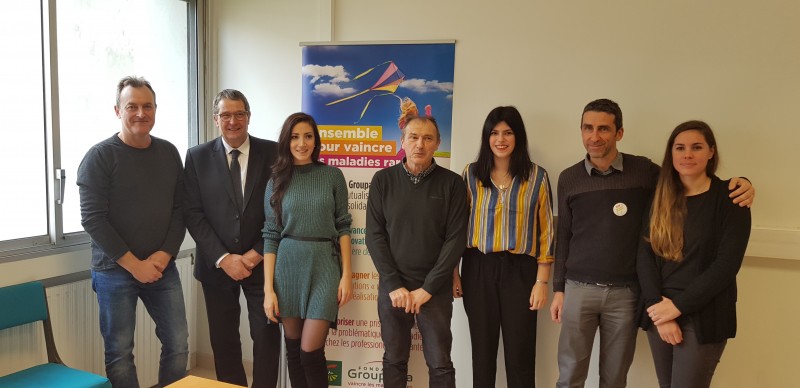
For more than 20 years, this teacher-researcher has been working on cancer. And it's been almost 10 years since he went to kidney cancer or renal cell carcinoma. By joining the team of Dr Christophe Grosset (Inserm, MiRCaDe team), he wanted to use his experience and take a new step forward by working on childhood cancer. He is the initiator of an ambitious project, which involves several surgeons, doctors and international researchers, on the study of nephroblastoma (or Wilms tumor) in children, co-funded by the association Eva pour la vie and Aidons Marina ...
Dr Patrick Auguste you are in charge of the study of Wilms tumor in the MiRCaDe team led by Dr Christophe Grosset. Can you tell us more about the project and the motivations that led you to work on childhood cancer?
For more than 20 years I have been working on cancer, more specifically in adults. And it's been almost 10 years since I went to kidney cancer or renal cell carcinoma. By joining the team of Dr Christophe Grosset (Inserm unit 1035, MiRCaDe team), I wanted to climb a new level in my career and work on childhood cancer without however moving away from what I knew, it is ie renal carcinoma. I remain convinced that the treatments for cancer in children must be completely different from those in adults. For that we must find new targets for these treatments, and we must therefore understand how childhood cancers and in particular, in my case, how nephroblastoma or Wilms tumor develops.
Wilms tumor is the main kidney tumor in children. It develops from the developing kidney and affects 1 in 100,000 children, which represents 100 cases per year in France. It is generally well cared for but in a little less than 10% of cases it results in the death of the patient mainly because of metastases. 10% of patients, it doesn't seem like much, but it's still too much for young children. In addition, chemotherapy and, possibly, radiotherapy are heavy for a young child and can be disabling afterwards.
The aim of the project is to characterize other therapeutic targets in high-risk Wilms tumors, ie tumors that can lead to the death of the child. For this we will identify the proteins that are specifically present in high risk tumors and which are absent in lower risk tumors. These proteins, present only in high-risk tumors, could subsequently be studied and targeted in new therapies.
Did you encounter any technical difficulties in launching this project?
The main difficulties lie in the study of future target proteins. For this, it is absolutely necessary to start studying them in the laboratory on Wilms tumor cells. However, there is only one commercially accessible cell line. This very certainly reflects a great difficulty in obtaining cells in culture from tumors. It is therefore proposed to obtain new cell lines from tumors. For this a technique recently used with success for obtaining a new Wilms tumor line will be used. So our project will also be used to obtain cell models which will then be accessible to the scientific community.
The characterization of the proteins specifically expressed in high-risk Wilms tumors will be carried out by a new technology developed at the University of Bordeaux by Dr Anne-Aurélie Raymond and Fréderic Saltel. Wilms tumors, like many pediatric cancers, are rare tumors and very often laboratories only have blocks of tumors that have been firmly fixed for the pathologist to make a diagnosis. The problem with binding is that it modifies the proteins and that it is subsequently impossible to characterize them. In this new technique, changes in proteins due to binding are reversed and it is subsequently easy to identify the proteins by a method called mass spectrometry. Once these proteins are identified, with the help of cultured cells, we can study the role of these proteins in high risk Wilms tumors. The aim, of course, is then to be able to inhibit the activity of these proteins in order to be able to kill the cells and therefore destroy the tumor.
Can you introduce us to the team that will work with you on the project?
I am part of an Inserm unit in Bordeaux (U1035), headed by Dr Alain Taïeb, who works on cancer mainly in adults. This unit is divided into several teams, including the MiRCaDe team to which I belong. This team, led by Dr Christophe Grosset, works mainly on pediatric cancers and more particularly on hepatoblastoma, infiltrating glioma of the brainstem and, now, Wilms tumor. The Wilms tumor project is international and will bring together people with different and complementary specialties. It will bring together, in addition to myself, a doctoral student from the University of Bordeaux and the team that developed the technique for identifying proteins. It will also be done in collaboration with a team of doctors in Seville (Spain), more particularly by Drs de Alava and Ramirez-Villar. Dr de Alava is the pathologist who monitors all kidney cancer diagnoses in Spain and Dr Ramirez-Villar is a member of the European Committee for Childhood Kidney Cancer (SIOP RTSG), a committee that defines the treatment of all pediatric cancers of the kidney. They are the ones who will provide the tumor blocks, the cells to be cultured and who will participate in the characterization of the role of the proteins characterized in high-risk tumors.
Did you encounter any financial or administrative difficulties in launching this project? What will Eva's financial support for life allow you to do?
In all projects, including this one, the hardest part is finding the money to start. The risks are higher when starting a project compared to an already established project. But it is also the risks that lead to new discoveries. The funding provided by Eva for Life will allow us to finance the characterization of proteins in high risk tumors. It is therefore highly crucial and will allow us to characterize proteins that can serve as therapeutic targets in order to treat high-risk Wilms tumors.

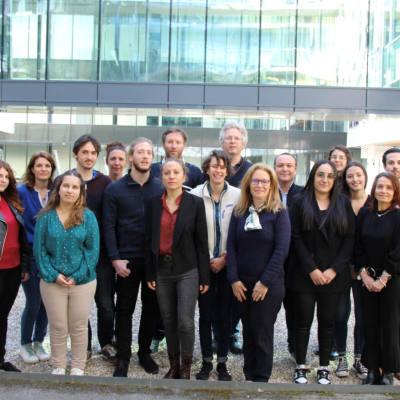
Eva pour la vie supports the Adapted Physical Activity project for children treated for Cancer and Insulin Sensitivity APACIS, led by Professor Marlène Pasquet, pediatric onco-hemato-immunologist at the children's hospital of the Toulouse University Hospital and Justine Thomas, APA teacher and doctoral student, as well as the recruitment of an APA position within this department.
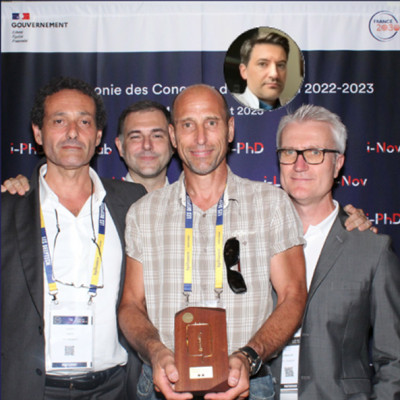
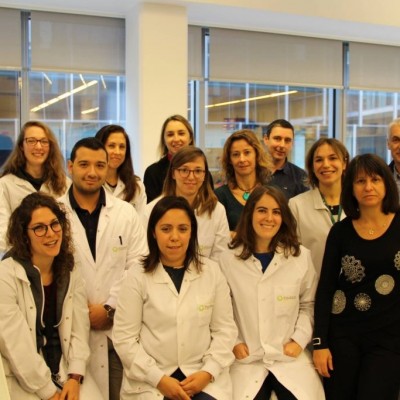
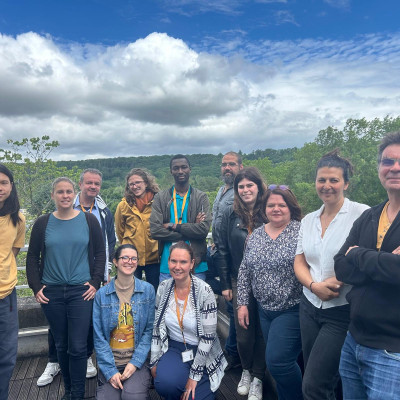
Eva pour la vie & Grandir Sans Cancer have decided to support the work of Dr. Célio POUPONNOT, at the Curie Institute, by funding the Project "Modeling of medulloblastoma using human cerebellar organoids and analysis of the effect of agricultural pollutants" through a grant. This research project includes a crucial environmental research component, the question of understanding in order to try to prevent being as important as the one that aims to better treat children with cancers ...
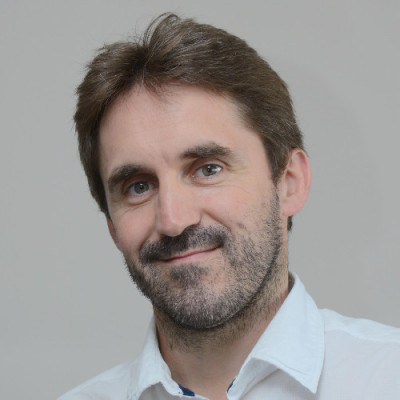
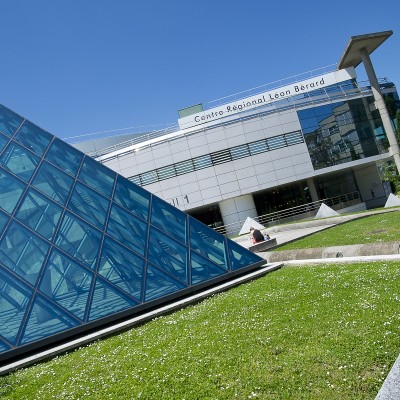
Resistance to treatment is a major clinical problem, in particular in the case of osteosarcomas, bone tumors affecting children or adolescents. Indeed, chemotherapy, associated with surgery, is the central pillar of current treatment. However, many osteosarcomas are or become resistant to these antiproliferative drugs. Recurrences and / or the appearance of metastases are then frequent. 2 out of 5 patients cannot be cured! Osteosarcoma is therefore a pediatric cancer with a poor prognosis for which it is absolutely necessary to identify ways to counteract resistance to treatment in order to improve the chances of recovery for patients.
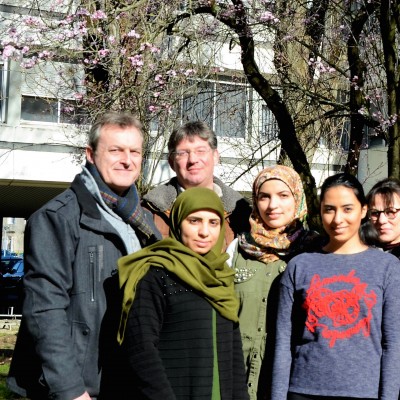
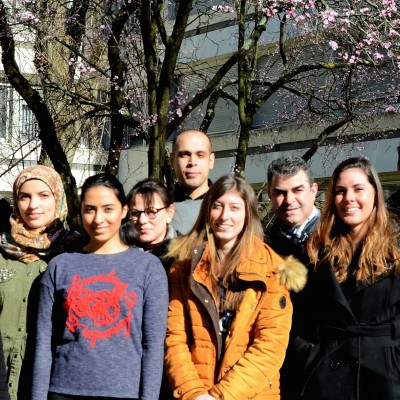
Since September 2014, Dr Martin Hagedorn has been leading a team of researchers (Caroline CAPDEVIELLE , Farah RAHAL, Justine CHARPENTIER and Mélissa MENARD) which devotes its research work to the identification of new therapeutic targets in brainstem tumors and to the improvement of its treatment methods. Work recognized by several European scientific teams & experts.
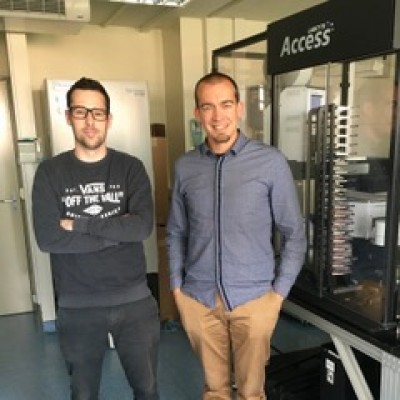
Dr Pasquier's research work mainly focuses on the repositioning of drugs which consists of testing, in new therapeutic indications, drugs already approved by the health authorities. The aim of this work is to identify new therapeutic targets for the most difficult to treat cancers and thus improve the care of patients suffering from these aggressive forms and refractory to treatment . In particular, pediatric cancers (neuroblastoma), brain tumors affecting children as well as adults (glioblastoma, medulloblastoma) as well as certain rare forms of cancer (angiosarcoma).
The work of the INSERM team co-directed by Dr Marie Castets (CR1 Inserm, HDR) and Dr Jean-Yves Blay (PUPH, HDR) focuses on cell death and cancers. Thanks to the support of Eva pour la Vie (55,000 euros) and other associations, this team is currently developing these lines of research on rhabdomyosarcomas, osteosarcomas and neuroblastomas ...
